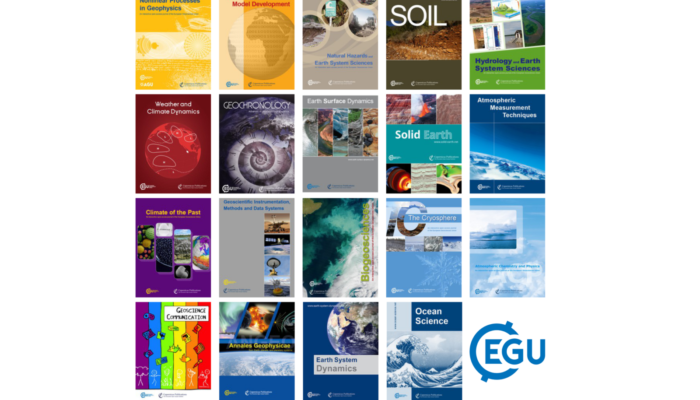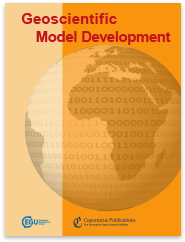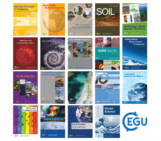
Each month we feature specific Divisions of EGU and during the monthly GeoRoundup we will be putting the journals that publish science from those Divisions at the top of the Highlights roundup. For February, the Divisions we are featuring are: Geosciences Instrumentation and Data Systems (GI), Planetary & Solar System Sciences (PS) and Solar-Terrestrial Sciences (ST). They are served by the journals: Geoscientific Model Development (GMD), Annales Geophysicae (ANGEO) and Geoscientific Instrumentation, Methods and Data Systems (GI).
Featured highlights
Geoscientific Instrumentation, Methods and Data Systems:
 Experiments on magnetic interference for a portable airborne magnetometry system using a hybrid unmanned aerial vehicle (UAV) – 11 February 2021
Experiments on magnetic interference for a portable airborne magnetometry system using a hybrid unmanned aerial vehicle (UAV) – 11 February 2021
An experiment concerning the static magnetic interference of the UAV was conducted to assess the severity of the interference of a hybrid vertical take-off and landing (VTOL) UAV.
(Editors note: this publication uses a term that is not currently supported by EGU’s guidelines for inclusive language, which instead recommends the term ‘uncrewed’ to refer to UAV’s)
Geoscientific Model Development:
 Coordinating an operational data distribution network for CMIP6 data – 17 February 2021
Coordinating an operational data distribution network for CMIP6 data – 17 February 2021
The distribution of data contributed to the Coupled Model Intercomparison Project Phase 6 (CMIP6) is via the Earth System Grid Federation (ESGF). The ESGF is a network of internationally distributed sites that together work as a federated data archive.
Other highlights
Atmospheric Chemistry and Physics:
Stratospheric aerosol layer perturbation caused by the 2019 Raikoke and Ulawun eruptions and their radiative forcing – 2 February 2021
On the ice-nucleating potential of warm hydrometeors in mixed-phase clouds – 3 February 2021
Opinion: Cloud-phase climate feedback and the importance of ice-nucleating particles – 5 February 2021
An overview of the ORACLES (ObseRvations of Aerosols above CLouds and their intEractionS) project: aerosol–cloud–radiation interactions in the south east Atlantic basin – 23 February 2021
Atmospheric Measurement Techniques:
ModIs Dust AeroSol (MIDAS): a global fine-resolution dust optical depth data set – 4 February 2021
Last Glacial Maximum (LGM) climate forcing and ocean dynamical feedback and their implications for estimating climate sensitivity – 10 February 2021
The Eocene–Oligocene transition: a review of marine and terrestrial proxy data, models and model–data comparisons – 15 February 2021
Greenland climate simulations show high Eemian surface meltwhich could explain reduced total air content in ice cores – 16 February 2021
Synchronized spatial shifts of Hadley and Walker circulations – 22 February 2021
A new view of heat wave dynamics and predictability over the eastern Mediterranean – 24 February 2021
Natural Hazards and Earth System Sciences:
A methodology for attributing the role of climate change in extreme events: a global spectrally nudged storyline – 8 February 2021
A revision of the Combined Drought Indicator (CDI) used in the European Drought Observatory (EDO) – 19 February 2021
The transient sensitivity of sea level rise – 18 February 2021
Review article: Earth’s ice imbalance – 9 February 2021
Macroscopic water vapor diffusion is not enhanced in snow – 12 February 2021
EGU Science in the News
A snapshot of recent English-speaking news coverage from around the globe based on research published in EGU’s 19 open access journals:
- Earth Loses 1.2 Trillion Tons of Ice Per Year, a Nearly 60% Increase From 1994, Smithsonian
- Decaying Urban Gas Lines Are Fueling Global Warming, Bloomberg Green
- New study warns that sea levels will rise faster than expected, Mongabay
- A New Day for the Climate, The New Yorker
- Come offset with me: how new policies are encouraging researchers to limit the environmental impact of air travel, Science Business
- Global ice loss is catching up to worse-case scenario predictions, World Economic Forum




